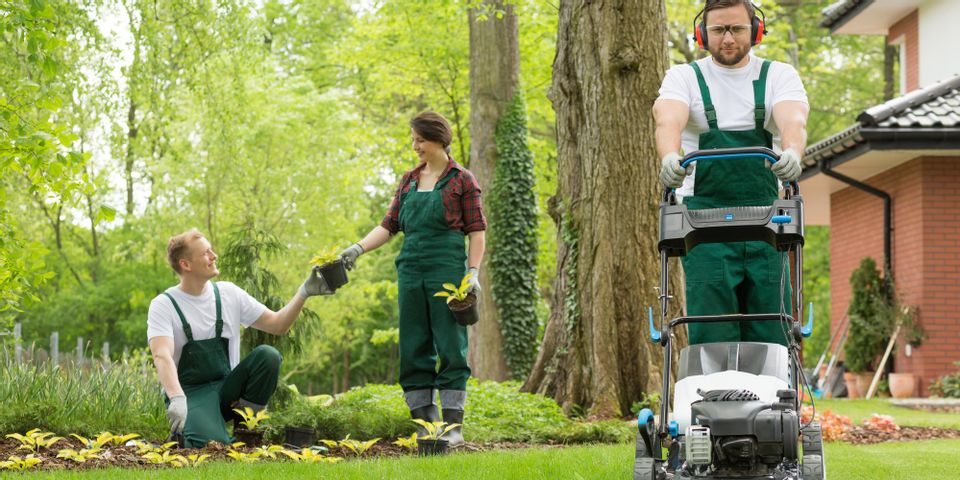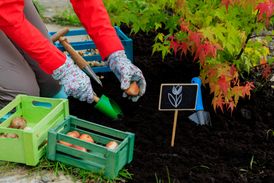A Guide to Spring Landscaping & Septic Systems

Many homeowners worry that a garden near their septic tank or leach field may become contaminated or even damage the system. But plants are effective at preventing soil erosion and absorbing excess moisture, which could actually protect your plumbing. Still, there are precautions and best practices you should follow to avoid harm. Follow the guide below to ensure you’re keeping your lawn beautiful and your property functional.
What to Know About Landscaping & Your Septic System
What Plants to Avoid
Plants with deep roots that actively seek out moisture-rich ground shouldn’t be planted anywhere near the septic tank and leach field. Water-loving trees and shrubs like pussywillow, weeping willow, maple, ash, birch, beech, poplar, and elm are some of the species you should keep away from your system. Their roots are strong enough to destroy plumbing lines, potentially causing costly and unsanitary leakage. If you’d like to plant these arbors, as a rule of thumb, the distance between where the tree is placed and your drain field must be equal to the specimen’s estimated height at maturity. Avoid growing fruits or vegetables on a leach field; they won’t be edible because they could have absorbed harmful bacteria.
What Greenery Is Safe
For planting over your leach field or near your tank, choose shallow-rooted perennials and grasses like fescue, Kentucky bluegrass, ornamental, or lawn grass. A shady spot is best for growing ferns, mosses, bunchberry, wintergreen, and Jacob’s ladder, to name a few. For sunlit areas, opt for covers like periwinkle, bugleweed, and coneflower, among others. There are trees and shrubs safe to plant around the septic systems, such as dogwood, Japanese maple, cherry, azalea, and holly.
How to Landscape Around a Septic System
 Aside from what to avoid planting, there are other guidelines you should follow when beautifying your property near a septic tank or drain field. To avoid disruption to your landscape in the event of pumping or repairs, don’t plant directly above your tank. Don’t place plastic sheets, bark, gravel, or too much mulch over the septic field, as doing so interferes with the evaporation process. Divert sprinklers and drainage away from the field to prevent oversaturating the ground. Waterlogged soil leads to ineffective treatment of wastewater underground, leaving some of it to pool at the surface, which is unsanitary. Lastly, avoid building heavy garden structures such as pergolas or fountains over the field, as this can result in soil compaction that could limit your system’s effectiveness.
Aside from what to avoid planting, there are other guidelines you should follow when beautifying your property near a septic tank or drain field. To avoid disruption to your landscape in the event of pumping or repairs, don’t plant directly above your tank. Don’t place plastic sheets, bark, gravel, or too much mulch over the septic field, as doing so interferes with the evaporation process. Divert sprinklers and drainage away from the field to prevent oversaturating the ground. Waterlogged soil leads to ineffective treatment of wastewater underground, leaving some of it to pool at the surface, which is unsanitary. Lastly, avoid building heavy garden structures such as pergolas or fountains over the field, as this can result in soil compaction that could limit your system’s effectiveness.
Knowing how to manage the plants in your landscape will help keep your septic tank in good condition and minimize possible health hazards. For quality septic tank cleaning and inspection, count on the professionals at Zook's Septic Services, LLC in Middleburg, PA. Serving residents throughout Susquehanna Valley, they also provide sewer cleaning and high-pressure water jetting. Request a free estimate online or call (570) 837-1466 today.
About the Business
Have a question? Ask the experts!
Send your question

